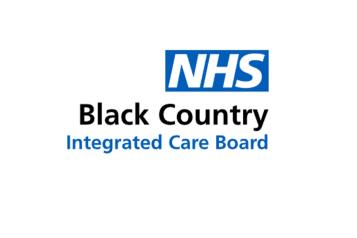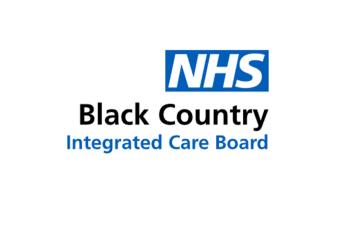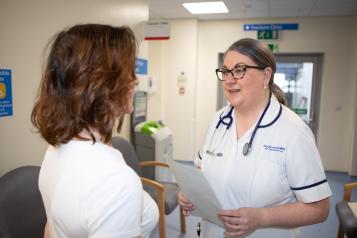
Protect yourself from slips and falls
With weather warnings and the forecast of frosty temperatures extended until Sunday 11 January, the NHS is reminding people to take care in the cold weather.
Slips, trips and falls all become more likely during wet, cold and icy weather conditions, so it’s important to be mindful of the weather before venturing outside.
There are many steps that can be taken to reduce the chances of falling, including keeping hands free to help stabilise yourself, wearing shoes with good grip and avoiding going out early in the morning when frost is thick or late at night when it’s dark.
Dr Mona Sidhu, a GP in Wolverhampton and Primary Care Medical Director for NHS Black Country Integrated Care Board, said: “Falls can happen to anyone, especially when the weather is colder, wetter and there’s ice on the ground. However, older people are even more vulnerable to such accidents.
“If they were to fall there is likely to be a bigger impact on their overall health, whether that be physically through injury or mentally and emotionally through loss of confidence and an increase in anxiety.
“As the temperature continues to drop, streets can be extremely slippery underfoot due to fallen leaves and icy pavements, so we would encourage all older people to take extra care when out and about.
“If you do need to go outside, wear shoes or boots with a flat, low heel and a slip-resistant sole to reduce slipping hazards and a good tread that helps to grip the surface. It’s important to keep warm and wear layers, both inside and outside, as when you’re cold you naturally tense up so you don’t move as well as you would normally.
“It’s also important to keep your hands free and wear gloves when walking so you can help stabilise or save yourself from a more significant injury if you were to fall. The more we rush, the more likely we are to fall, so plan ahead to give yourself plenty of time to complete an activity or get to an appointment.
“If you can, always try to let someone know what your plans are and what time you anticipate being home and be sure to have access to a mobile phone where possible so you can call for help if necessary.”
People are also being encouraged to check up on friends, relatives and neighbours who may be
more at risk of a fall.
Dr Natasha Behl, a GP in Solihull, added: “Cold snaps can be particularly challenging for older people and those with long-term health conditions, especially if icy conditions make it harder to get out and about.
“Checking in on loved ones during this time is incredibly important. A quick phone call, a knock on the door, or offering to pick up shopping or prescriptions can help prevent accidents and ensure people are staying warm, well and supported.
“Making sure someone has enough food, heating and medication may seem like a small action, but it can make a huge difference to their health and wellbeing during periods of severe cold.”
Slips, trips and falls all become more likely during wet, cold and icy weather conditions, so it’s important to be mindful of the weather before venturing outside.
There are many steps that can be taken to reduce the chances of falling, including keeping hands free to help stabilise yourself, wearing shoes with good grip and avoiding going out early in the morning when frost is thick or late at night when it’s dark.
Dr Mona Sidhu, a GP in Wolverhampton and Primary Care Medical Director for NHS Black Country Integrated Care Board, said: “Falls can happen to anyone, especially when the weather is colder, wetter and there’s ice on the ground. However, older people are even more vulnerable to such accidents.
“If they were to fall there is likely to be a bigger impact on their overall health, whether that be physically through injury or mentally and emotionally through loss of confidence and an increase in anxiety.
“As the temperature continues to drop, streets can be extremely slippery underfoot due to fallen leaves and icy pavements, so we would encourage all older people to take extra care when out and about.
“If you do need to go outside, wear shoes or boots with a flat, low heel and a slip-resistant sole to reduce slipping hazards and a good tread that helps to grip the surface. It’s important to keep warm and wear layers, both inside and outside, as when you’re cold you naturally tense up so you don’t move as well as you would normally.
“It’s also important to keep your hands free and wear gloves when walking so you can help stabilise or save yourself from a more significant injury if you were to fall. The more we rush, the more likely we are to fall, so plan ahead to give yourself plenty of time to complete an activity or get to an appointment.
“If you can, always try to let someone know what your plans are and what time you anticipate being home and be sure to have access to a mobile phone where possible so you can call for help if necessary.”
People are also being encouraged to check up on friends, relatives and neighbours who may be
more at risk of a fall.
Dr Natasha Behl, a GP in Solihull, added: “Cold snaps can be particularly challenging for older people and those with long-term health conditions, especially if icy conditions make it harder to get out and about.
“Checking in on loved ones during this time is incredibly important. A quick phone call, a knock on the door, or offering to pick up shopping or prescriptions can help prevent accidents and ensure people are staying warm, well and supported.
“Making sure someone has enough food, heating and medication may seem like a small action, but it can make a huge difference to their health and wellbeing during periods of severe cold.”


